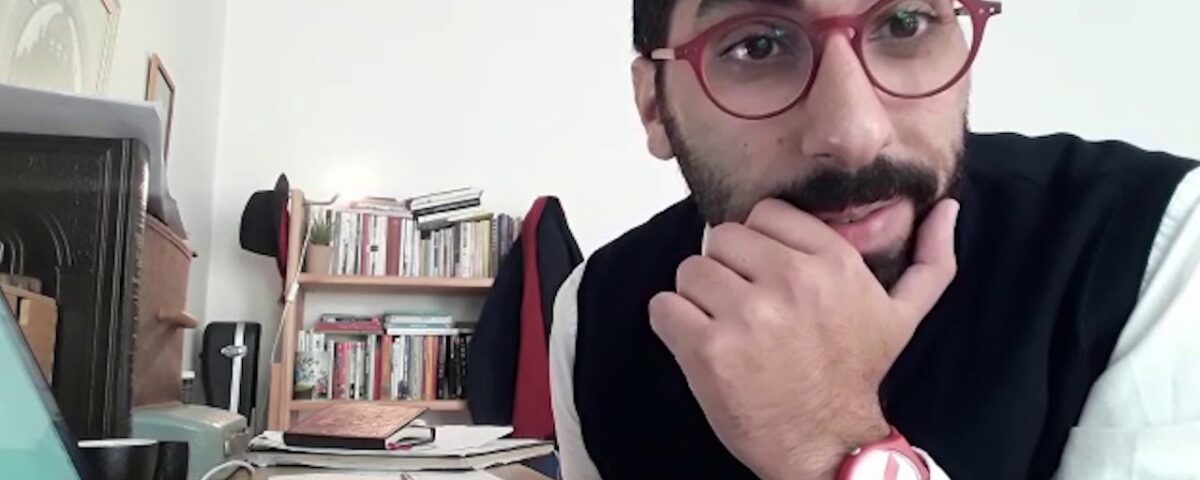Alt+SHIFT: Tales Out of School

 Alt+SHIFT is the keyboard shortcut allowing us quick transition between input languages on our keyboards—for many readers of TRADITION that’s the move from Hebrew to English (and back again). Yitzchak Blau continues this Tradition Online series offering his insider’s look into trends, ideas, and writings in the Israeli Religious Zionist world helping readers from the Anglo sphere to Alt+SHIFT and gain insight into worthwhile material available only in Hebrew.
Alt+SHIFT is the keyboard shortcut allowing us quick transition between input languages on our keyboards—for many readers of TRADITION that’s the move from Hebrew to English (and back again). Yitzchak Blau continues this Tradition Online series offering his insider’s look into trends, ideas, and writings in the Israeli Religious Zionist world helping readers from the Anglo sphere to Alt+SHIFT and gain insight into worthwhile material available only in Hebrew.
The success of shows such as “Shtisel” and “Shababnikim” indicates the great curiosity outsiders have about the inner workings of the Haredi world. Not much of a television watcher, I have been indulging such inquisitiveness by reading the weekly column of Eden Abitbol, Sippurim meha-Yeshiva, in the Motzash Magazine section of Makor Rishon. Abitbol’s column offers non-Haredi readers a window into the life of a Haredi yeshiva student.
Abitbol has published two books of poetry and is the son-in-law of Rabbanit Yemima Mizrachi. He comes from a family of ba’alei teshuva and one wonders if his account represents the world of most yeshiva bachurim or if he is an outlier. In his world, Haredi yeshiva fellows have some awareness of sports and secular music, and may even attend a final Kaveret reunion concert. One column extols a book written by a woman, Rabbanit Shulamit Ezrachi (a biography of her father R. Meir Chadash), as the best portrait penned about the Slobodka yeshiva.
In his columns, a reader will discover common themes linking all of humanity. As with everyone else, Haredim would like to stand out as individuals, enjoy a change of routine, do not always listen to authority figures, and are capable of acts of great compassion and great cruelty. An outsider might mistakenly think that the highly regimented lifestyle would not allow for the types of cultural consumption described above (individuality, change of routine). Yet in a milieu of highly regimented “uniforms,” subtle choices, like a sweater or tie, can reflect the desire for individuality. A student might become well-known for creating a Gemach for moisturizer alleviating chapped hands during the cold winter months. In terms of the routine, even a food-truck selling low-grade chulent that shows up one night a week generates a degree of excitement.
When the rest of the yeshiva discovers that Eden writes poetry, a few other budding authors ask him to comment on their work. Abitbol expresses it quite well:
There is a world of underground content produced in Haredi society in general, and in yeshivot in particular. It is written inside secret notebooks, hidden under the Gemara, on random pages, stashed away in a simple Spartan dormitory closet. Worlds of stories are created where there is no place for culture, free time, or non-Torah creativity.
In terms of obeying rabbis, Haredi fellows, like all young men, do not like to adhere to what they perceive as foolish rules. For example, when his yeshiva prohibits students from buying “tostim” (bread, cheese, and other items made in a Panini press) from a shop across the street, Eden and his friend immediately transgress the edict. They are caught and expelled from the yeshiva for a week.
The best aspect of the column may be his affection and respect for the yeshiva world combined with his refreshingly honest criticism. Some of the critical elements clearly apply to any school and others relate more specifically to the Haredi yeshiva system. The temptation to stretch the truth when trying to please donors affects all institutions. Our author tells the story of his yeshiva putting a shelf full of copies of the Tanya in the beit midrash before the visit of a Chabad benefactor—and then removing them just as soon as the gvir is out the door. He also calls out anti-Sefardic racism in the yeshiva system. When he and a few peers are upset about the murder of R. Elazar Abuhatzeira in 2011, one of the rabbeim shows indifference to their pain.
Another story powerfully conveys the dangers of irresponsible educators. Two rising stars in the yeshiva happily learn together as havrutot. The mashgiah breaks them up, reassigning them to other partners, and tries to create a rivalry between them by noting to each how well the other one is progressing. Competition indeed ensues and while one achieves stardom, the other has a breakdown. The column ends by noting how the former student is now a congregational rabbi and the author of three sefarim, the latter works as a security guard, and the mashgiah, alas, still occupies his position.
While these types of systemic flaws exist in non-Orthodox and non-Jewish institutions as well (each in its own way), we now turn to two stories more particular to Haredi schooling. In one, Abitbol tries to learn Navi one day during afternoon seder, is “caught” by the mashgiah, and instructed to return to Gemara study. A system where only Gemara merits attention shortchanges even students who love that subject, let alone those who prefer other aspects of Torah.
During a summer retreat, the yeshiva hired a religious acting troupe to perform one night. The performance intended to highlight the shallowness of social media and Facebook “friends.” However, once the actors mentioned Facebook, the rabbeim and most of the students walked out in protest. One rebbe even called out that “anyone who received Torah from me should leave the hall.” According to our author, the rebbe was protesting the exposure of his students to the very knowledge of the existence of Facebook, even though every singly bochur had already heard of it. Abitbol, along with four other students and one older man, saw the embarrassment of the performers and chose to remain inside. When the students asked the man why he stayed, he answered with a dvar Torah. Why do we read the story of Pinhas at the end of Parshat Balak one week and only read about his reward the following week? It may take a full week to investigate if an act of kanaut (zeal) is performed truly for the sake of heaven or if it is merely an act of shallow fanaticism or a cheap desire for action.
Yitzchak Blau, Rosh Yeshivat Orayta in Jerusalem’s Old City, is an Associate Editor of TRADITION.

